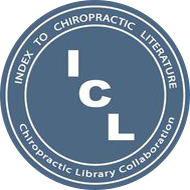Objective: The purpose of this study was to assess the association between hip flexor length and pelvic tilt or lumbar lordosis by quantifying the effect of stretching on pelvic tilt and lumbar lordosis.
Methods: We quantified pelvic tilt and lumbar lordosis before and after a single session of passive hip flexor stretching in a sample of 23 male participants. Changes in hip flexor length were also characterized, using a Thomas test protocol to measure passive hip extension in supine lying. We investigated both the mean effect of the stretching protocol and potential correlations between changes in passive hip extension and changes in pelvic tilt or lumbar lordosis.
Results: Following the stretching protocol, there was a mean increase of 2.6° (P < .001) in passive hip extension and a corresponding mean reduction of 1.2° (P < .001) in anterior pelvic tilt. However, there was no change in lumbar lordosis, nor were there any meaningful correlations between change in passive hip extension and change in pelvic tilt or lumbar lordosis.
Conclusion: The results suggest that hip muscle stretching may lead to immediate reductions in pelvic tilt during relaxed standing. Such stretching programs could play an important role in interventions designed to improve standing postural alignment.
Author keywords: Pelvis; Musculoskeletal Manipulations; Muscle Stretching Exercises
Author affiliations: Health Sciences Research Centre, University of Salford, Salford, Manchester, United Kingdom
Corresponding author: SJP—s.preece@salford.ac.uk
This abstract is reproduced with the permission of the publisher; full text is available by subscription. Click on the above link and select a publisher from PubMed's LinkOut feature.
